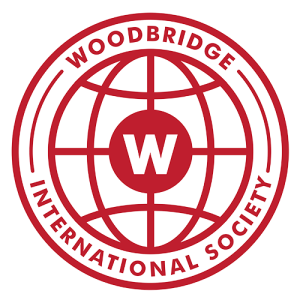The International Alumni Panel, jointly planned by OCS and Woodbridge International Society (the club for international undergraduates at Harvard College), brought together three alumni who shared their experiences with undergraduate summer planning, finding a job post-grad, and managing visas. Ralph, originally from Aleppo, Syria, concentrated in Computer Science (CS) and Chemical and Physical Biology, and is now pursuing an MD/PhD at Harvard. Bianca (from Paraguay) and Seeam (from Bangladesh) both studied Applied Math and CS, but now work in different fields: at HiFiBio as an associate and at IBM as a product manager respectively.
The first lesson to learn from the panelists is that it is alright to change routes. Bianca started college considering a diploma in Bioengineering, but taking time to explore through classes and OCS advising meetings taught her to value the freedom of Applied Math. Both Seeam and Ralph believed they would follow the premed track. Only the latter did, but he says that LS50 opened his eyes to interdisciplinary research, something he did not previously consider.
A second piece of wisdom shared by the panelists regards summer experiences during undergraduate years: when looking for research or internships, you should focus on learning and satisfying your curiosities rather than their relevance to your future job. Seeam felt a lot of pressure to be productive during his first college summer. His plans falling apart last minute have not negatively affected his career goals, as he has interned at IMB all other summers, receiving consecutive returning offers. Both Bianca and Ralph consider that their most valuable summer experience was research (an REU in North Carolina, and PRISE, respectively), in particular for the friends and connections they made. They all agree that the soft skills they gained through these experiences have been more useful than the niche knowledge they had to acquire over summer. As Bianca says, you can make up for missing knowledge by selling yourself during the interview and emphasizing your curiosity and wish to learn – so apply to that job even if you meet no more that 50% of the skills posted!
A third lesson to be learned stems from their experiences with visas: there is no single right way to approach the process. The H1B work visa is luck dependent, and this drove Seeam to apply right after graduating so he can better support himself in the near future. In six years, his firm can apply for a green card for him, which will allow him to legally stay in the US indefinitely. Bianca is currently in her last year of OPT, and plans to pursue a graduate degree after this period ends, which allows her to experience the workforce without the lengthy process. Ralph reminds everyone that sometimes, job and grad school rules are different for international students, so it’s always best to be aware of all your options.
There are many questions that arise when discussing post-graduation plans. Help can always be found at the appropriate offices: for fellowship inquiries, reach out to the Undergraduate Research and Fellowships office (URAF); for worries regarding visas and maintaining your legal status during school and OPT, the International Office (HIO) is best equipped to support you; and for questions about the pre med/pre law and other career paths, you are always welcome at OCS.
In the end, Seeam reminded us of a great last lesson: the best resource at Harvard are the people. If you want contact info for our wonderful panelists or other alumni in your field, please don’t hesitate to contact OCS.






